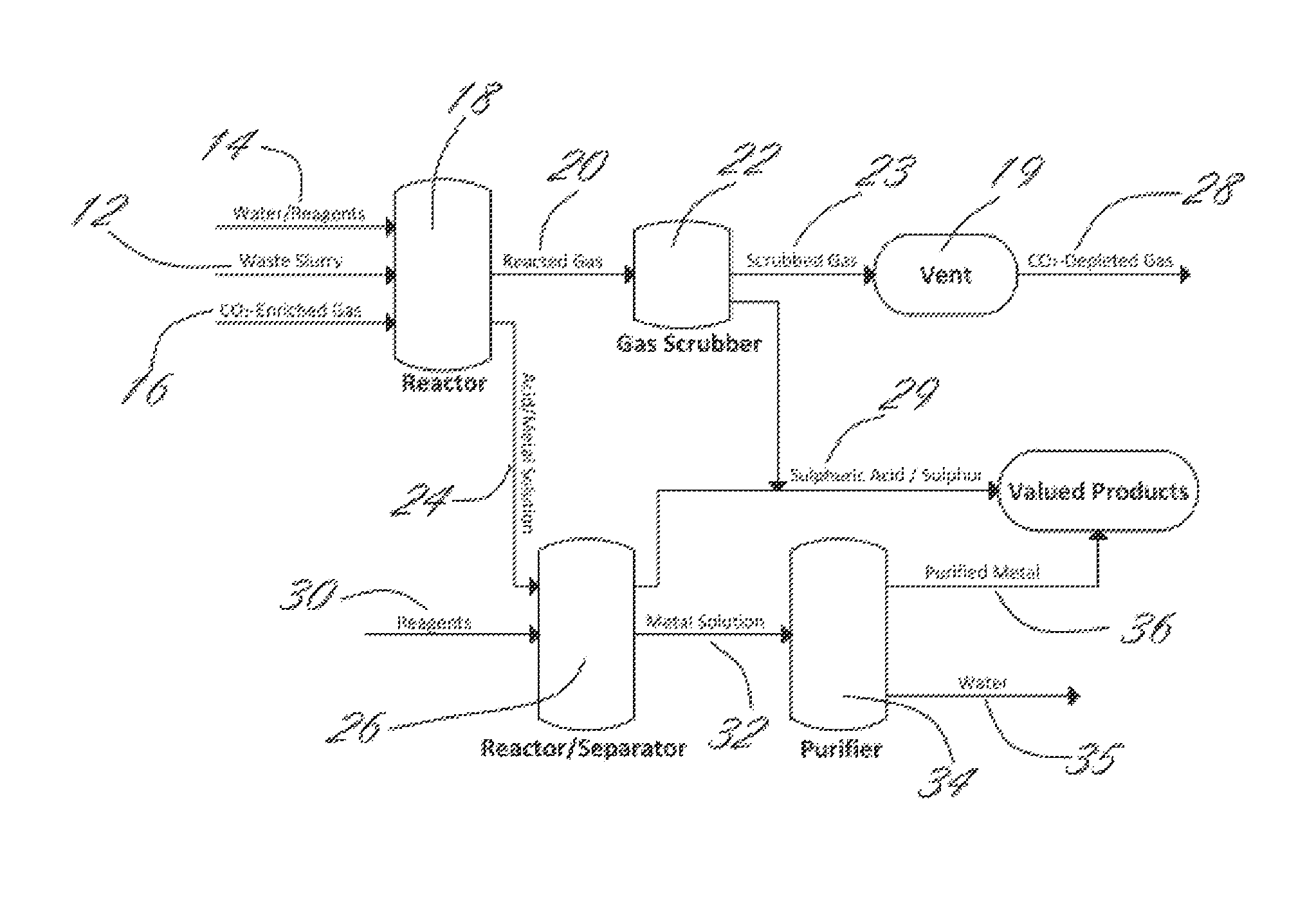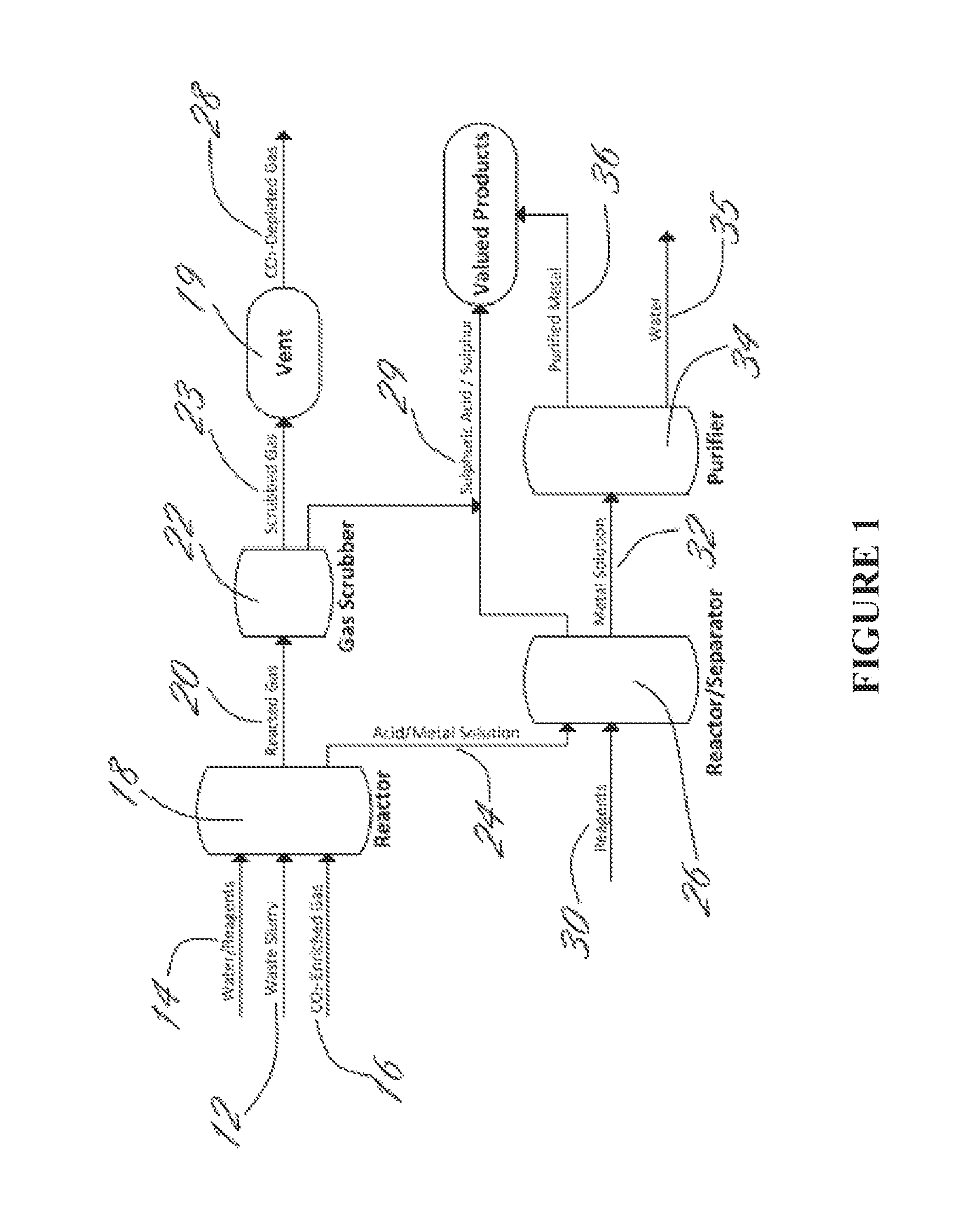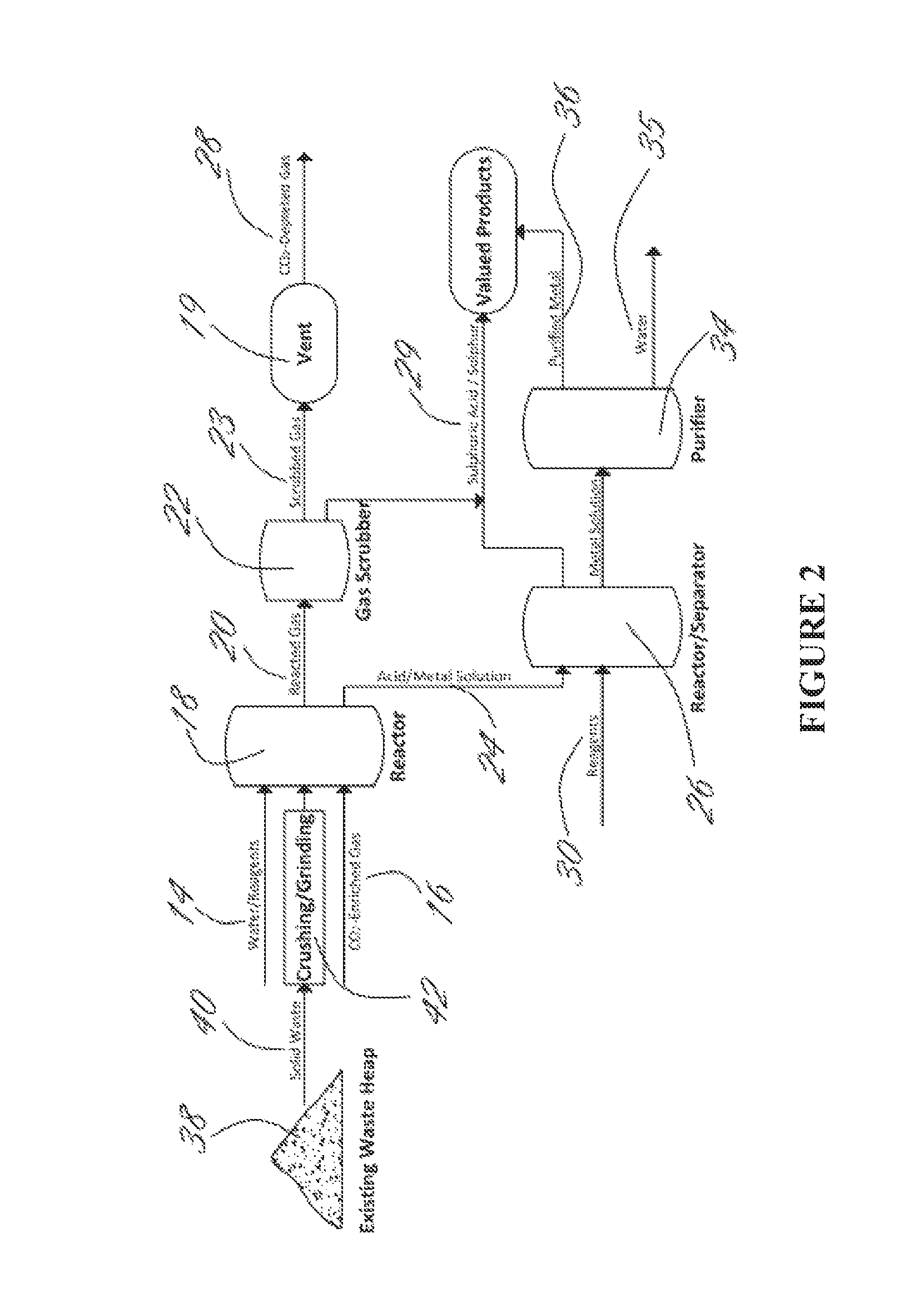Processing of sulfate and/or sulfide-rich waste using CO2-enriched gases to sequester CO2, reduce environmental impacts including acid rock drainage and produce reaction products
a technology of sulfide and sulfide, which is applied in the direction of separation process, dispersed particle separation, chemical apparatus and processes, etc., can solve the problems of long-term environmental problems, negative environmental consequences, and the impact of mine waste streams from projects with sulfide ores on the environment, and achieve the effect of reducing the greenhouse gas emissions of such operations
- Summary
- Abstract
- Description
- Claims
- Application Information
AI Technical Summary
Benefits of technology
Problems solved by technology
Method used
Image
Examples
examples
Feasibility of Reacting CO2-Rich Flue Gas with Sulfide Mine Tailings to Form Stable Carbonates
[0148]These following experiments involved exposing samples of material with elevated levels of sulfide minerals to CO2 gas under various conditions, for varying periods of time, and then using different characterization methods to determine if carbonates have formed.
[0149]The material used in most of these experiments is the reference material CPB-2 available from Natural Resources Canada. CPB-2 is a lead flotation concentrate from the former Sullivan Mine concentrator at Kimberley, British Columbia, Canada. The material is a very fine, black powder. The mineral species contained include galena PbS (64.7%), anglesite Pb(SO4) (12.1%), sphalerite ZnS (10.1%), pyrrhotite Fe1-xS (6.8%), pyrite FeS2 (4.9%), plus various silicates and other phases at <0.6%. Elemental composition is approximately 63.5% Pb, 18% S, 6.0% Zn, 7.1% Fe, with other elements contributing the remainder. Powder X-ray diffr...
PUM
| Property | Measurement | Unit |
|---|---|---|
| pressure | aaaaa | aaaaa |
| Pressure | aaaaa | aaaaa |
| Temperature | aaaaa | aaaaa |
Abstract
Description
Claims
Application Information
 Login to View More
Login to View More - R&D
- Intellectual Property
- Life Sciences
- Materials
- Tech Scout
- Unparalleled Data Quality
- Higher Quality Content
- 60% Fewer Hallucinations
Browse by: Latest US Patents, China's latest patents, Technical Efficacy Thesaurus, Application Domain, Technology Topic, Popular Technical Reports.
© 2025 PatSnap. All rights reserved.Legal|Privacy policy|Modern Slavery Act Transparency Statement|Sitemap|About US| Contact US: help@patsnap.com



